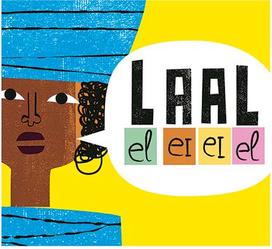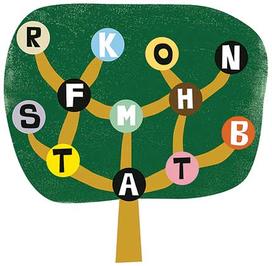Florian Lionnet Documents Languages of Africa
Lionnet studies Laal, an endangered language spoken by 800 people in southern Chad

Florian Lionnet grew up in a remarkably diverse auditory environment. Due to his father’s career as a doctor in the French military, he enjoyed a peripatetic lifestyle, spending time in Chad, Niger, Burundi, and New Caledonia. Although Lionnet spoke only French as a child, he was intrigued by the local languages he encountered with every move. By age 12, he began to collect and study language textbooks in his free time — the hallmark of “a very normal childhood,” he jokes.
Lionnet earned a master’s degree in linguistics from the École Normale Supérieure in Paris and a Ph.D. from the University of California, Berkeley, where he cultivated a specialty in previously undescribed African languages. Now an assistant professor in Princeton’s Program in Linguistics, Lionnet is a world expert on Laal — an endangered language with no extant relatives, currently spoken by about 800 people in southern Chad.
Lionnet’s Work: A Sampling

TRANSCRIBING BLIND Since 2010, Lionnet has spent part of each year in Chad, recording speakers of Laal in as many contexts as possible. He transcribes these recordings with the international phonetic alphabet, a tool used by linguists to document languages with no extant written tradition. He’s now preparing to publish a dictionary and grammar book of Laal. One distinctive feature of Laal, notes Lionnet, is its unusual gender system. Instead of a masculine/feminine and/or neuter system for nouns, Laal uses a masculine/feminine system for humans, but an additional gender system for nonhuman nouns: Concrete nouns, like “table” and “goat,” have a different gender than abstract nouns, like “dream” and “departure.”

SOUND CHECK One of Lionnet’s major research interests is phonology, the study of sound systems in language. It is the counterpart of phonetics, another approach that linguists use to analyze sound. While phonetics deals with the acoustic properties of spoken language, phonology deals with abstract sounds — sounds that exist in the mind before they are translated into actual speech. While phonetics might compare how speakers of two different languages pronounce the letter “L,” phonology asks whether a language has an “L” sound at all by uncovering the key rules about how sounds may be combined. In a 2017 article, Lionnet argued that the phonology of Laal is influenced by its speakers’ understanding of phonetics.

FAMILY TIES Lionnet has a special interest in historical linguistics, which traces how languages change over time. He is researching a family of related languages in southern Chad to determine how and when each diverged from a common ancestor. Tracking linguistic changes can reveal clues about the history of the people who speak these languages; borrowed words, for example, are usually evidence of migration or cross-cultural contact. In regions that lack written traditions and remain largely unexplored by archaeologists, historical linguistics can be an essential tool for accessing the ancient past.










No responses yet